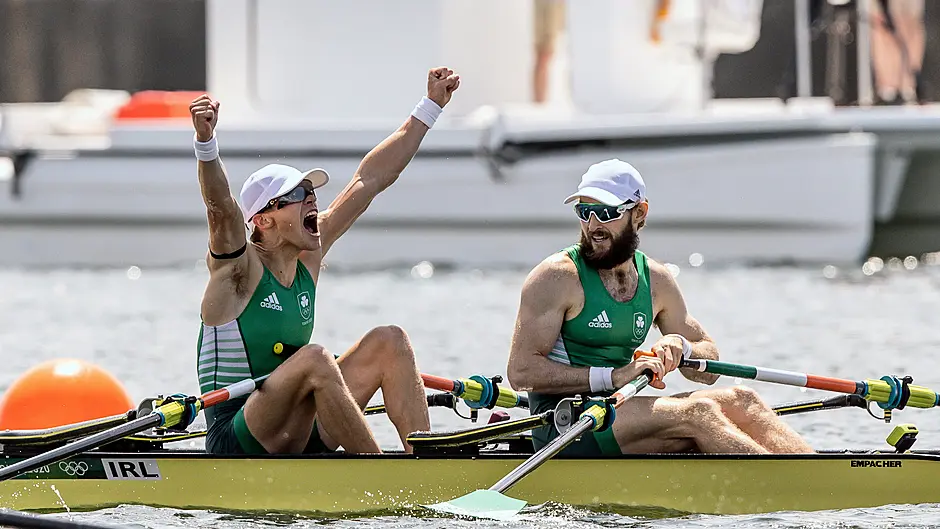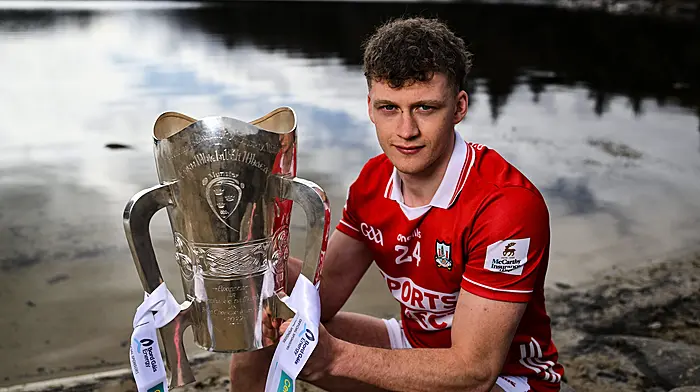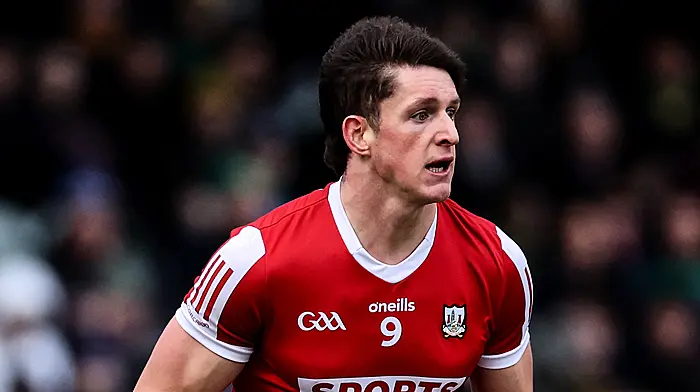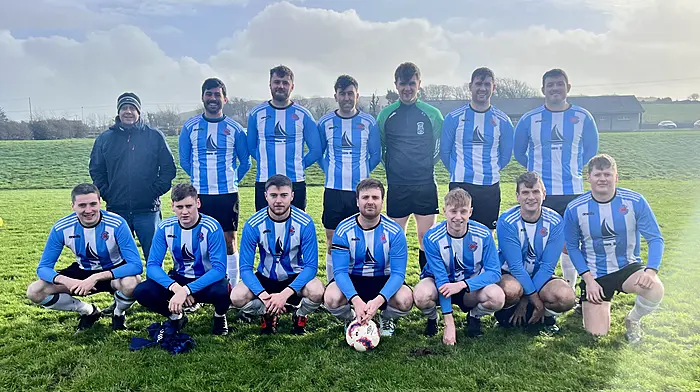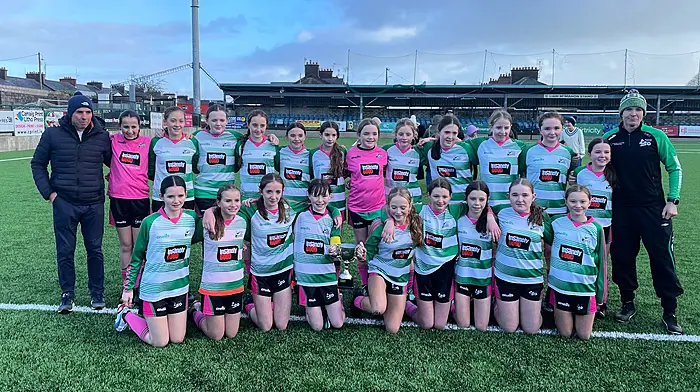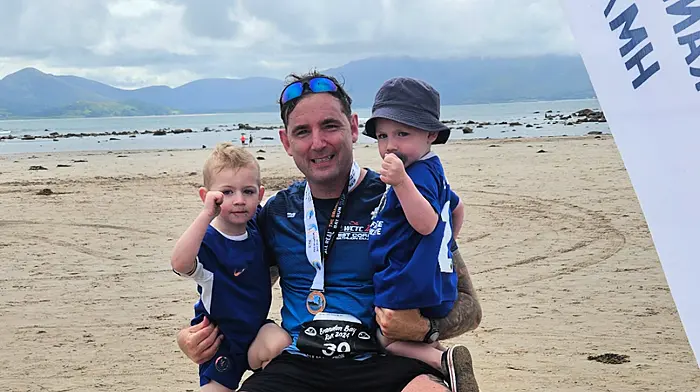BY KIERAN McCARTHY
FINTAN McCarthy insists the decision to axe lightweight rowing from the Olympic programme after the 2024 Games will not impact his preparation for next summer’s competition.
The Skibbereen Rowing Club combination of McCarthy and Paul O’Donovan are the reigning men’s lightweight double Olympic champions and have already qualified the Irish boat for the Games in Paris.
At the 2021 Games in Tokyo they became the first Irish rowers ever to win Olympic rowing gold, and the three-time world champions will head into 2024 – now the swansong for lightweight rowing at Olympic level – as the crew to beat in the men’s lightweight double.
Despite the disappointment of knowing lightweight rowing will be dropped from the Olympics, it’s business as usual.
‘It alters things in terms of what’s going to happen after, but when it comes to training and all that for Paris, it’s all systems go, the same as ever,’ McCarthy says.
‘We still want to win Olympic gold, whether it’s the last one or not. From day to day, and our approach, this doesn’t affect things.
‘There will probably be a few sit-downs to think about what we’ll do after Paris, but this won’t change our approach.’
When World Rowing confirmed the news last month that the men’s and women’s lightweight double sculls – the only Olympic-class lightweight category – will be cut from the Olympic programme ahead of the Los Angeles Games in 2028, it was news McCarthy and Rowing Ireland’s lightweights were expecting. Still, it stings.
‘We had it in the back of our minds the whole time that this news was coming, but it only softens the blow so much. It was still a bit hard to take because this has been a huge part of our lives and it has been our whole careers. Well, mine anyway,’ the Skibb rower explains.
At the Covid-delayed Tokyo Games McCarthy became the sixth Skibbereen lightweight rower to compete in an Olympics, with Aoife Casey the fifth at the same Games. Before them, Eugene Coakley (2004), Richard Coakley (2008), Gary O’Donovan (2016) and Paul O’Donovan (2016 and 2021) all flew the Skibb flag on the Olympic lightweight stage. Timmy Harnedy (2004) and Lydia Heaphy (2021) both travelled as subs for Athens and Tokyo respectively.
‘A sad day for lightweight rowers worldwide’ – that was Skibbereen Rowing Club’s reaction to the disappointing news, with Ireland’s most successful rowing club having forged a name for itself on the world stage thanks to the incredible exploits of its lightweight athletes, led by Rowing Ireland’s lightweight coach, Skibb’s own Dominic Casey. Gary and Paul were the first Irish rowers ever to win an Olympic rowing medal with a sensational silver in the men’s lightweight double in Rio 2016. Then Paul and Fintan made more history with a glorious gold – Ireland’s first Olympic gold rowing medal – in Tokyo. Already, Paul and Fintan have qualified the Irish men’s lightweight double for Paris, and Aoife Casey has helped qualify the Irish women’s equivalent. The hope is the mighty lighties can go out in a blaze of glory in Paris.
‘The original idea behind including lightweight rowing was to make it more inclusive so it is a shame to lose that,’ Fintan McCarthy says, with lightweight rowing making its Olympic debut at the 1996 Games.
Post-Paris, the conversation will invariably be: what’s next?
While beach sprint rowing, a format of coastal rowing, has been confirmed to feature at the LA Games in 2018, Fintan McCarthy admits the more likely option for him is to switch his focus to heavyweight rowing. The main difference between the two categories is that heavyweight rowers can be any weight whereas lightweight rowers must be below a certain weight – for a lightweight men’s crew it’s a 70kg average, and for lightweight women, it’s an average crew weight of 57kg.
‘I’ve thought about what’s next a little bit, not a whole pile yet,’ McCarthy says.
‘I have spent so long trying to get good at this sport, I think probably going heavyweight would be the most obvious choice.
‘Hopefully, if it’s not us, others can go on and show that you don’t have to be that size. We have done a pretty good job so far of being up there by being close to heavyweights. There is a bit of hope. It can be done.’
That’s a challenge for a different day, post Paris, but all his focus is now firmly on 2024. He’s just back after a short training camp in Seville preceded by a Team Ireland rowing training camp at Vaires Sur Marne in Paris, where the Olympic rowing will take place next summer. That’s where his attention lies: Paris, and making sure that Paul O’Donovan and himself prove they are the best men’s lightweight double in the world. It’s business as usual.

